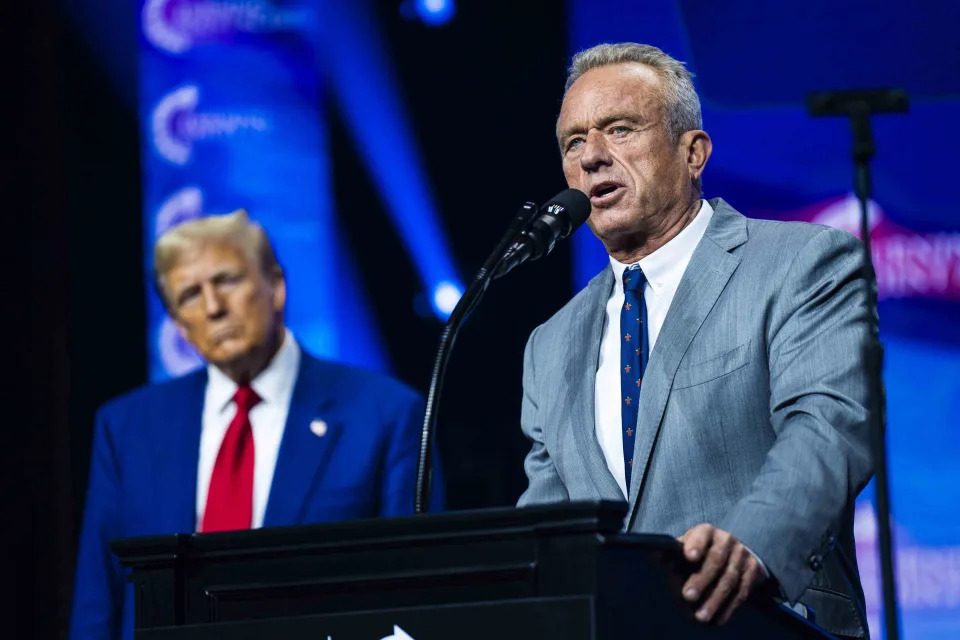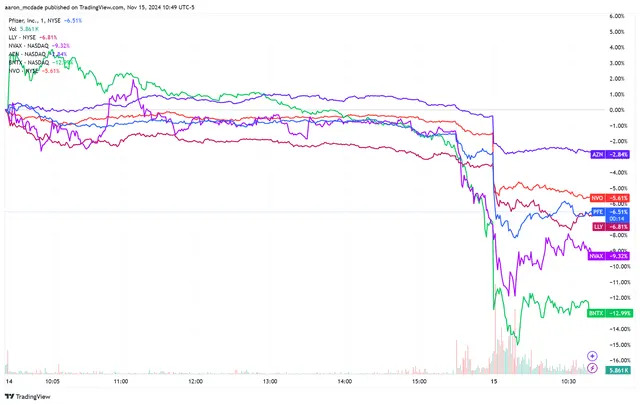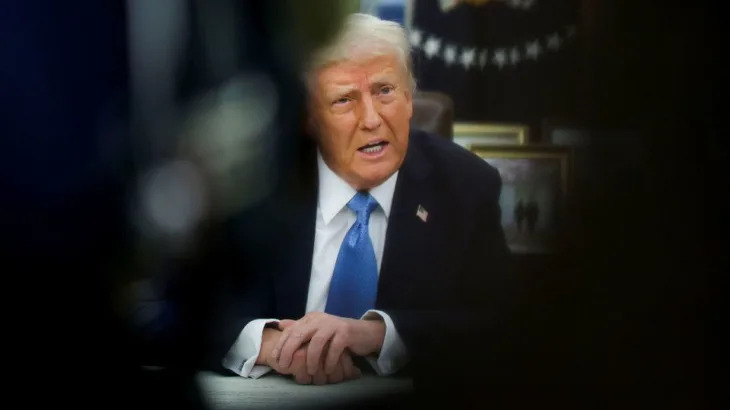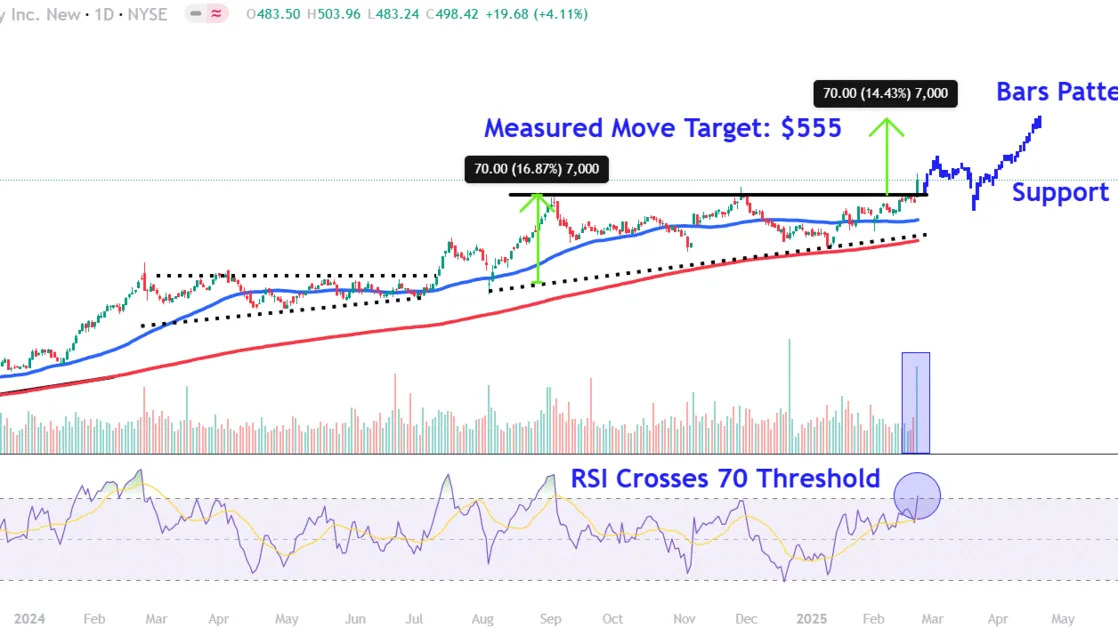
Key Takeaways
In the 2024 presidential election's latest impact on the stock markets, shares of several vaccine makers were down Friday morning following the nomination of Robert F. Kennedy Jr. to head the Department of Health and Human Services.
President-elect Donald Trump announced the pick Thursday as he continues to make selections for his second term's Cabinet. Kennedy spent part of the campaign running as a third-party alternative to Trump and Vice President Kamala Harris before dropping out and endorsing the Republican nominee.
Shares of US and International Vaccine Makers Down
Several pharmaceutical companies were down in early trading Friday including Pfizer ( PFE ), Eli Lilly ( LLY ), and Novavax ( NVAX ), among others.
The declines also extended to international companies who operate in the U.S. market, as shares of Astrazeneca ( AZN ), BioNTech ( BNTX ), and Novo Nordisk ( NVO ) also declined Friday morning.

Why is Kennedy's Nomination Weighing Vaccine Makers?
Kennedy said following his nomination that he looks forward to "working with the more than 80,000 employees at HHS to free the agencies from the smothering cloud of corporate capture."
The former presidential candidate spent his career as an environmental lawyer before entering the "anti-vaccination" movement around 2005, according to The New York Times. Kennedy has promoted the long-debunked theory that vaccines cause autism, and the Times reported that organizations Kennedy has started have promoted misleading or disproven theories about harmful effects of vaccines.
He has criticized the "revolving door" of people who work at both the government and private sector, believing the influence of pharmaceutical companies pressures regulators to be dishonest about allegedly dangerous vaccines, the Times reported.
Kennedy would still have to be approved by the Senate, which the Times reported could be difficult even with a Republican majority, given his history of extreme statements.





